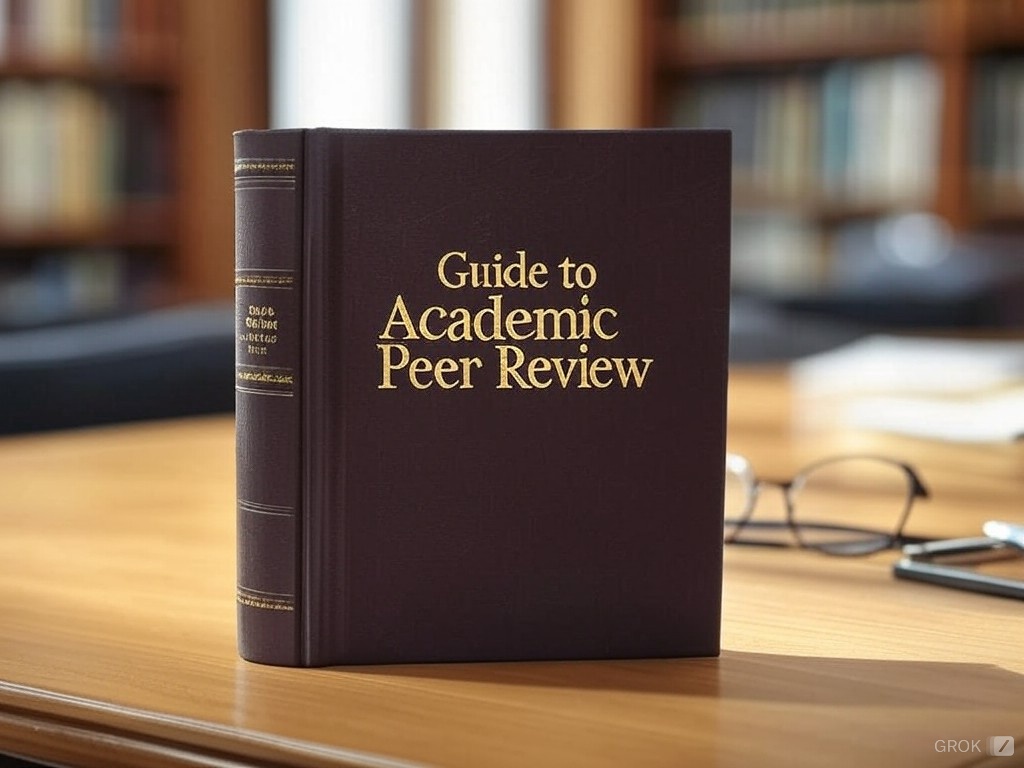Guide to Academic Peer Review: What to Expect and How to Respond

Guide to Academic Peer Review: What to Expect and How to Respond
The peer review process is a cornerstone of academic publishing, ensuring the quality and integrity of scholarly work. Whether you're submitting your first manuscript or responding to reviewer comments, understanding how to navigate peer review is essential for academic success.
This comprehensive guide will walk you through the peer review process, from initial submission to final acceptance, with practical strategies for addressing reviewer feedback effectively.
The typical peer review process includes:
- Initial submission and editorial screening
- Selection of peer reviewers
- Reviewer evaluation period
- Editorial decision
- Author revision process
- Final decision
Types of Peer Review
-
Single-Blind Review
- Reviewer identities hidden
- Author identities known
- Most common format
- Traditional approach
- Field-specific variations
-
Double-Blind Review
- All identities hidden
- Reduced bias potential
- Increased objectivity
- Author anonymization
- Citation considerations
-
Open Review
- Transparent process
- Public comments
- Visible identities
- Community engagement
- Ongoing dialogue
Common Types of Reviewer Feedback
-
Major Revisions
- Significant changes needed
- Methodological concerns
- Additional experiments required
- Substantial rewriting
- New analysis needed
-
Minor Revisions
- Clarity improvements
- Additional references
- Writing style adjustments
- Format corrections
- Data presentation updates
-
Technical Corrections
- Grammar and spelling
- Citation formatting
- Figure quality
- Statistical corrections
- Terminology consistency
Response Letter Example
Reviewer Comment: "The methodology section lacks detail about participant selection criteria."
Response: "Thank you for this observation. We have expanded the methodology section (pages 5-6) to include detailed participant selection criteria, including inclusion/exclusion parameters and recruitment procedures."
Changes Made: Added two paragraphs describing selection criteria and included a new table (Table 2) summarizing participant demographics.
Responding to Reviewer Comments
-
General Principles
- Be respectful and professional
- Address all comments
- Provide clear responses
- Document changes made
- Justify disagreements
-
Response Structure
- Point-by-point format
- Clear organization
- Specific page references
- Quoted text changes
- Supporting evidence
-
Strategic Approaches
- Prioritize major concerns
- Group similar comments
- Maintain positive tone
- Show appreciation
- Be thorough
Best Practices for Revision
-
Organization
- Track all changes
- Create revision plan
- Maintain version control
- Document decisions
- Review thoroughly
-
Communication
- Clear response letter
- Professional tone
- Complete explanations
- Timely submission
- Follow-up questions
-
Quality Control
- Check all changes
- Verify references
- Update figures/tables
- Proofread carefully
- Consistency review
- Ignoring reviewer comments
- Defensive or confrontational responses
- Incomplete documentation of changes
Frequently Asked Questions
Most journals expect revisions within 1-3 months. However, if major revisions are required, you may request additional time. The key is to communicate with the editor about your timeline and ensure your revisions are thorough rather than rushed.
Address each reviewer's comments separately and clearly explain your decisions. If there are contradictory suggestions, explain your reasoning for following one approach over another. The editor will make the final decision on how to proceed.
Yes, but do so respectfully and with strong supporting evidence. Explain why you disagree and provide references or data to support your position. Remember that the goal is to improve your paper, not to win an argument.
Other Articles You Might Like
What Happens When You Feed an AI Paper Writer Biased Research Data?
An investigation into how AI writing assistants process and amplify biases present in scientific literature, with experimental evidence showing how these systems can perpetuate methodological flaws, citation biases, and problematic assumptions when trained on or prompted with skewed research data.
How to Write an Annotated Bibliography: A Complete Guide
Master the art of writing effective annotated bibliographies with this comprehensive guide. Learn proper formatting, annotation components, and expert tips for creating scholarly annotations across different citation styles.
Prompt Engineering Secrets: How to Get Ivy-League-Level Essays from AI
Master the art of crafting sophisticated prompts that elevate AI-generated essays from mediocre to exceptional, with expert techniques used by top students and professionals.
What is APA Format? A Complete Guide with Examples
Learn everything you need to know about APA format, from basic guidelines to specific citation examples. This comprehensive guide covers formatting rules, in-text citations, reference lists, and common mistakes to avoid.
Time Management for Students: Maximizing Writing Efficiency with Yomu
Yomu real-time feedback, grammar checks, outlining tools, editing features, vocabulary enhancement, collaboration capabilities, and multilingual support can help college students maximize writing efficiency, conquer the time crunch, and complete high-quality assignments without sacrificing personal time.
The Silent War Between Professors and AI Essay Writers
An inside look at the escalating technological battle between academia and artificial intelligence, where professors develop new strategies to detect AI-generated essays while students and AI developers find increasingly sophisticated ways to evade detection.
